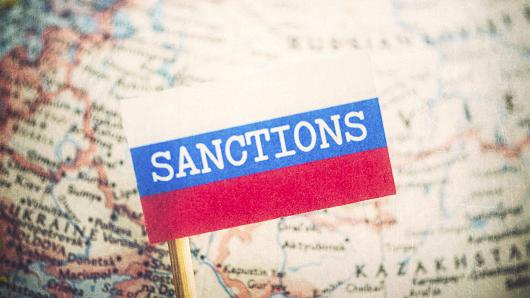Everyone who follows the Russian state media in one way or another knows that for years they have used propaganda to justify every crime ordered by the Kremlin, especially war crimes, as a response to an alleged ever-increasing “external threat.” Every such action by the Russian government is portrayed as a “necessary response” to allegedly hostile policies initiated by the United States. Russian leadership, from Putin down to the last diplomat, echo the theme alleging that “NATO is breaking its promise not to expand in the East.” They accused the US of “invading the sphere of Russia’s vital interests and organizing a coup in Ukraine.” America “supports a Fifth Column,” “provoked a civil war in the Donbas region in Ukraine,” and so on.
Such ideas, successfully deployed inside Russia, have been refuted more than once by Western journalists. Articles debunking the myth that “the West humiliated Russia” and demonstrating that today’s confrontation is a result and not the cause of Russian aggression have been published in the West.
Some of these weak spots are:
1. Some Americans are naïve about foreign policy
Traditional American pragmatism does not extend into areas outside of personal interests – and the situation in Russia and Ukraine certainly is not among those.
Moreover, media reporting about these foreign policy issues is not important enough for them to engage in fact-checking.
2. Russian propaganda plays on Americans’ distrust of their own government
Most Americans, including those who are highly patriotic, distrust politicians and corporate media. Americans consider a critical and suspicious attitude toward authority to be one of the main features of their democracy and see it as a guarantee against an authoritarian rule. By itself, this is an admirable trait, but Russian propagandists have taken advantage of it with remarkable frequency.
Hollywood regularly portrays the FBI or the CIA suddenly discovering that they are only pawns in a large conspiracy, a power struggle between good and evil, which forces them to fight not only the bad guys but also their own government. Even the main characters in the cult serial “The X-Files” discover after years of looking for “little green men” that high government officials are not only hiding the truth but conspiring with the aliens. Therefore, regardless of any information received from official US sources and mainstream media, revelations offered by the Russian propagandists often are viewed as a breakthrough opportunity to discover an alternative point of view.
3. Confusion of balance with objectivity
Some American news outlets contribute to the spread of Russian propaganda-inspired conspiracy theories. Over a year ago, the well-known American analyst Paul Goble noted that many Western journalists have long confused balance with objectivity. They feel they must show every side of an issue regardless of the veracity of the information and its source. This encourages Moscow to flood the internet with many different versions of reality in the belief that Western news media will accept them as “part of a historical record,” something that, in the final analysis, must have happened because it was reported.
4. The cult of professionalism
Americans tend to look at things more sensibly. They do not consider themselves experts on every foreign policy issue. For this reason, they may accept the opinions of Russian spokesmen in the belief that they know best what is happening in their own country.
5. American politeness and political correctness
The Kremlin is an avid exploiter of American politeness and political correctness. Americans don’t feel obligated to argue until exhaustion to prove they are right about something. They are prepared to keep mum and retreat, especially when they see that the subject of discussion is more important to their interlocutor than to themselves.
In this manner, even if they disagree with the other side’s arguments, Americans do nothing to hinder the spread of propaganda.
[hr]Unfortunately, the Kremlin’s spin doctors are perfectly aware of the West’s many weaknesses and are adept at exploiting them. Despite the spread in the West of Russian “active measures” designed to confuse the public and to split the Western alliance, the United States is still unable to find a way to respond to the information war waged against it and to respond to the threat in such a way that the response would not impinge on the basic principles of American democracy.




